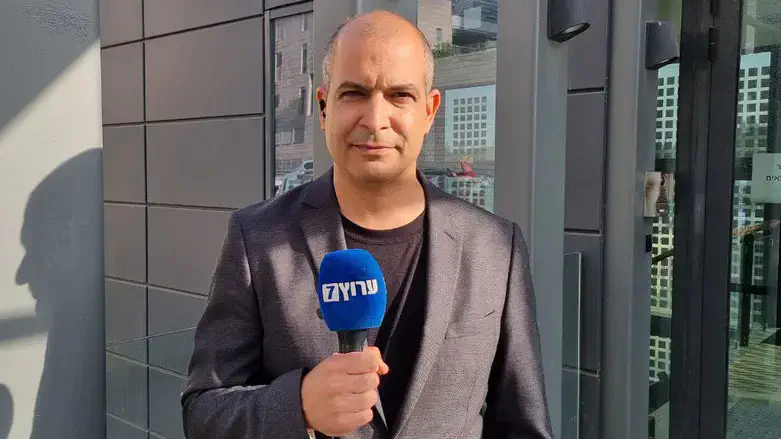
Dr. Menahem Merhavy, an authority on Middle Eastern Affairs at the Truman Institute, spoke to Israel National News - Arutz Sheva about the way the Iranian government is presenting the events of the missile attack that was intercepted by Israel.
"They are trying to convey different messages in a specific way," says Merhavy. "One is inward, to Iran itself, which they are marketing as an immense success. We saw the celebrations in the Iranian parliament, including photos, some of which are completely faked, to glorify the achievement of this attack. On the other hand, the real message to the region and to Israel in particular is the message that Iran is sending to the US and the rest of the world, that in fact, from its point of view, with this attack Iran wants to put an end to the assassination saga from early April and not to deal any more with any more attacks from Iran and into Iran, thereby ending the incident."
Dr. Merhavy adds that he was surprised by the Iranian Foreign Minister when he emphasized that the UAV attacks were against military installations and not against civilian targets, "which is true. The fact is that Iran did not target population centers in order to prevent large-scale civilian casualties, which ideologically might have pleased Iran, but the price for such an attack would have been too heavy for them to deal with."
According to Merhavy, the Iranians did not expect very different outcomes from those that occurred on the ground. He believes that the Iranians also assumed that a large part of the UAVs and missiles would not reach Israel and that those that did would probably be shot down. Even so, this has portrayed a certain image of victory for them, especially when they boasted the minor damage to a military base in the center of the country. “They claimed that this is the base from which the attack on Syria was launched, so they have had their say."
Regarding the US demand to hold back on any response against Iran, Dr. Merhavy says that "it would be right for Israel to exercise restraint for two reasons. First, this is not the equation that Iran wants to repeatedly test in mutual attacks. It would not be right or good for Israel to repeat this again and again. Both countries are in a weary state, and it would not be good for either of them to do that."
Another reason for restraint, which he thinks is right for Israel, is the international defensive umbrella that this time worked well on Israel's side. "It is not worth our while to test the willingness and interests of these countries too much, first and foremost of Jordan, which is under immense pressure at home to join the efforts against Israel, and certainly not to prevent an attack on Israel, which has not shown much diplomatic goodwill towards us in recent years. For these reasons, Israel needs to be smart in stretching the boundaries of its regional interests."
According to Merhavy, the Iranian media is less involved in covering Israeli media and is focusing more on self-flattering pro-Iranian coverage, in contrast to, for example, Al Jazeera, where they make sure to broadcast the "best" in the Israeli media.
So, what about the Iranian society and their position towards the attack, and possibly also in relation to an Israeli counterattack? Merhavy says that it is difficult to define the situation decisively, as we are talking about a country of ninety million people, where freedom of speech is limited. However, there is no doubt that many in Iran and among Iranian expatriates would not regret seeing a severe blow to the government in Tehran, provided that the blow is targeted at military, and not civilian, entities. "Such a blow would have two outcomes, strengthening elements that would be happy to lash out at the Iranian government, such as ethnic minorities, and on the other hand, creating cohesion and unity around the regime, by the people who are under attack from the outside. That should also be taken into account."
"In recent years, the Revolutionary Guards and their senior leaders have suffered repeated blows. Mohammad Reza Zahedi is not the first, and probably not the last, to die under such circumstances. This is a severe blow to their morale and Iran has made an attempt to raise the morale of its own security forces, at a relatively low cost to us as well. I don't expect a dramatic Israeli response to the latest attack – and therefore Israel should lower its profile right now regarding Iran – and concentrate on the more immediate tasks facing it, such as Hamas in Gaza and Hezbollah in Lebanon."

